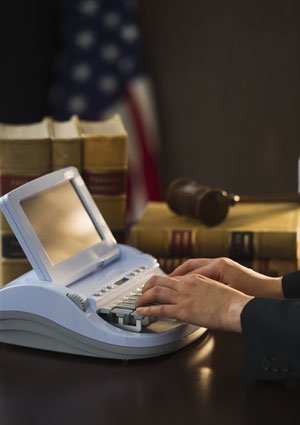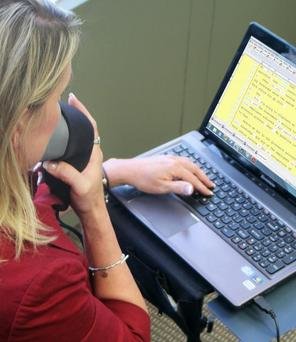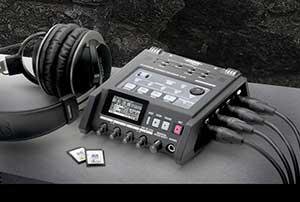The Olympics of Court Reporting

Depending on which area of the country you’re in, you’re likely used to a certain method of court reporting and may not be aware that there are multiple methods by which court reporters capture the record.
The method with which most people are familiar is stenotype, in which the reporter uses a special typewriter to capture the proceedings in phonetic shorthand. Stenomask reporters, or voice writers, are most familiar to people who have served in the military. The newest type of reporter is an electronic reporter.
Some court reporters have very strong opinions about each method and which one is “the best.” At Greater Raleigh Court Reporting, we’ve always maintained that it’s not the method that makes a good record, it’s the reporter. We back up that philosophy with our actions – we have reporters who use each method.
With that said, let’s review the various types of court reporters you might meet in your depositions.
1. Stenotype reporters use phonetic shorthand and a specialized keyboard to capture the proceedings. A computer-aided transcription program then translates the shorthand into English, which the reporter edits and proofreads to create the verbatim record.

2. Stenomask/voice writers dictate the proceedings verbatim into a mask, which is connected to a digital recording device. There are large masks, which cover the reporter’s nose, and mini masks, which only cover their mouth. They are trained to speak in a low voice – not a whisper – at such a level that the recording equipment picks it up but others in the room cannot hear them. The digital file is either translated using voice recognition technology or transcribed to create the final transcript.

3. Electronic court reporters use specialized software and high-quality audio-visual equipment to record testimony. The software allows them to record each speaker’s audio feed on a separate track to ensure complete accuracy of the transcript. Electronic reporters also take contemporaneous notes of the proceedings within the software, which are then linked to that spot in the audio record.

Regardless of which method your court reporter uses, they will all be able to read back a question and answer, mark exhibits, warn you not to speak over each other, provide you with an accurate verbatim transcript, and serve as an impartial guardian of the record.
Schedule your next deposition now with Greater Raleigh Court Reporting: 919-586-8011.